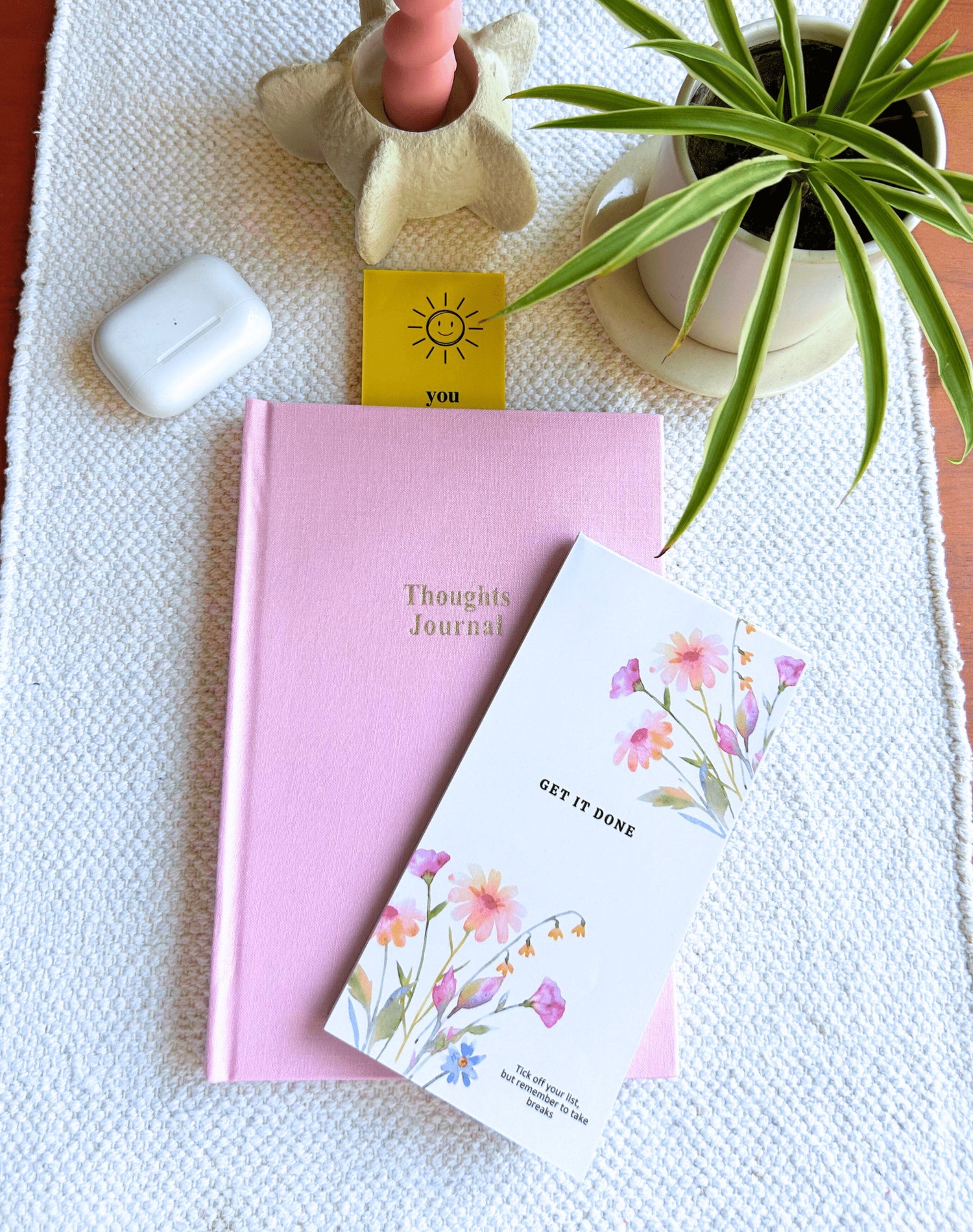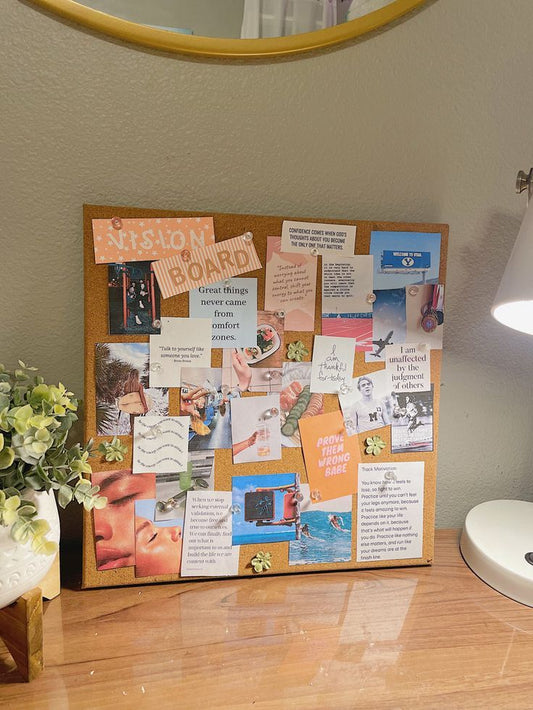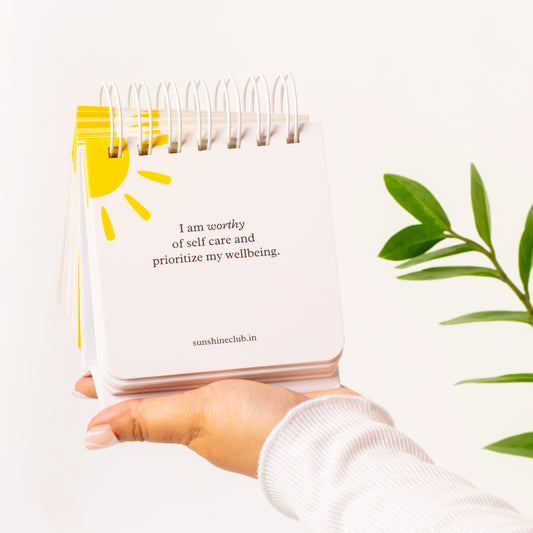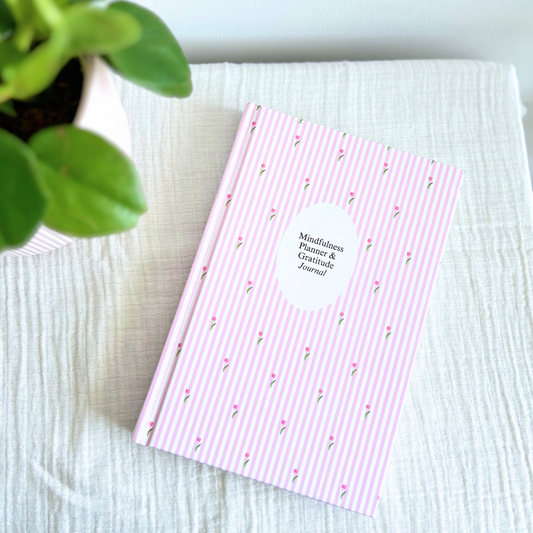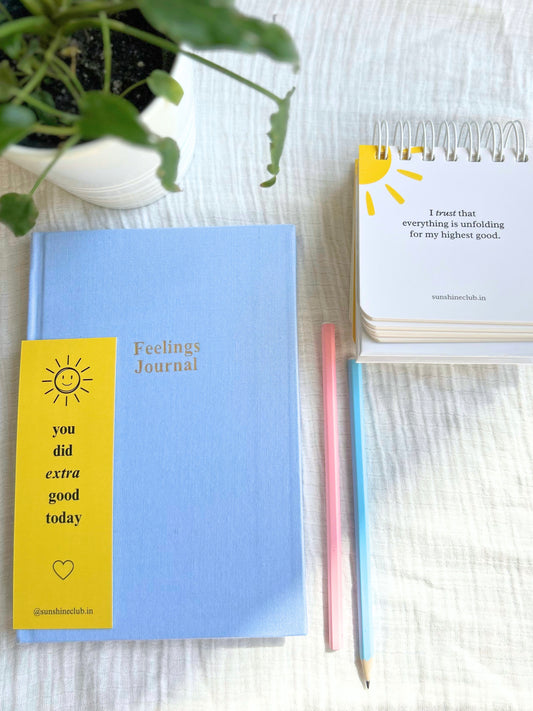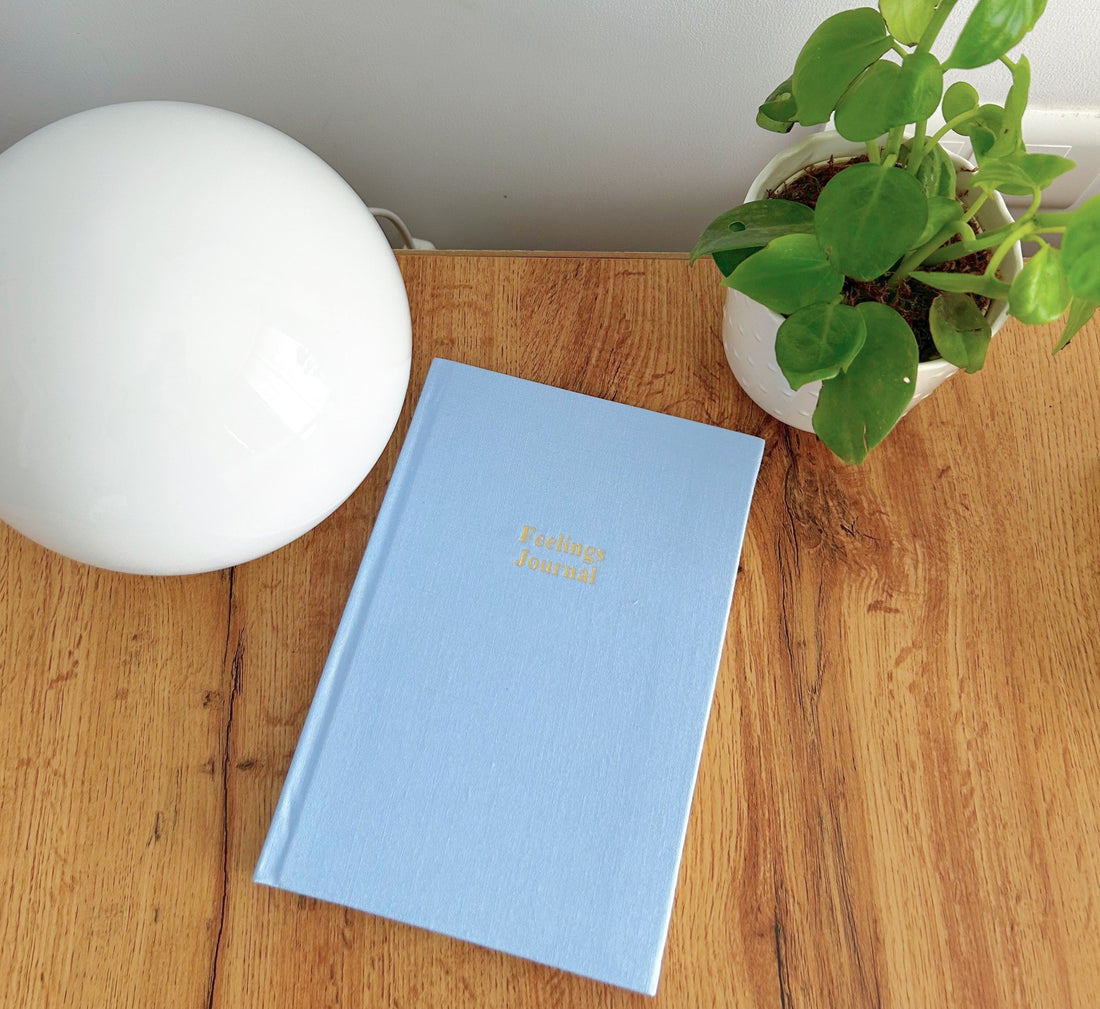
What to do when you don’t know what to Journal about
Share
Staring at a blank page? You’re not alone.
Even the most consistent journalers hit moments of mental fog or creative block. The good news? Journaling isn’t about perfection — it’s about presence.
Whether you’re feeling stuck, uninspired, or overwhelmed, this guide will show you exactly what to do when you don’t know what to journal about.
First, Know This: It's Okay to Feel Stuck
Writer’s block in journaling is normal — especially if you’re:
- Tired or overstimulated
- Emotionally drained
- Pressuring yourself to write “the right thing”
The key is to shift from overthinking to simply expressing.
7 Simple Things to Do When You Don't Know What to Write
1. Use a Prompt
Prompts are a gentle way to guide your thoughts. Try:
- What’s been taking up the most space in my mind?
- What emotion am I avoiding today.
- What would I say to my past self right now?
Tip: Keep a running list of prompts in your journal or phone.
2. Do a Brain Dump
Set a timer for 5 minutes and write whatever comes to mind — messy, raw, unfiltered.
This helps clear mental clutter and often reveals hidden thoughts or patterns.
3. List 3 Things
If nothing else, just list:
- 3 things you’re grateful for
- 3 things you’re feeling
- 3 things you need right now
This builds momentum and helps you reconnect with yourself.
4. Describe Your Day
Write about what you did today — even if it feels boring. Include:
- What you ate
- What you saw
- Who you spoke to
- How it made you feel
This strengthens emotional awareness and routine tracking.
5. Try “I Don’t Know What to Write...”
Literally start your entry with:
“I don’t know what to write today, but...”
Then see where it goes. Often, this unlocks your deeper thoughts without pressure.
6. Draw, Doodle, or Use Stickers
Journaling doesn't have to be all words. Express with:
- Doodles
- Color codes for moods
- Stickers or washi tape
- Collage using magazine clippings or photos
This keeps the practice joyful and creative.
7. Read a Quote or Affirmation and Reflect
Find a quote that resonates and write your reaction. For example:
“This too shall pass.”
What does this bring up for you? What are you hoping will pass?
FAQs
Q: What should I write in my journal if I have nothing to say?
A: Try a simple prompt, make a list, or do a brain dump. Even one word is a good place to start.
Q: Is it okay to skip journaling when I’m stuck?
A: Yes — but writing through resistance can often lead to surprising insights. Keep it gentle and pressure-free.
Q: Can I use images or quotes instead of writing?
A: Absolutely. Journaling is about expression, not just writing. Visuals, affirmations, or even coloring can be powerful.
You don’t need the “perfect words” to make journaling work — you just need to show up.
Some days you'll write pages, and some days you'll write one sentence. Both are valid.
When in doubt, write what’s real — even if it’s just “I feel stuck.” That’s where the magic begins.
